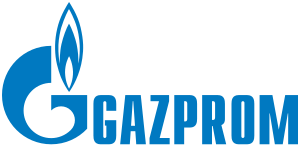Could a cartel of natural gas suppliers team up to form a cartel much like OPEC?
That could be in the cards if you believe Leonid Bokhanovsky, the newly elected secretary general of the Gas Exporting Countries Forum, GECF.
That may be a new alphabet soup group we'll have to get used to, although it doesn't exactly roll off the tongue like OPEC, and maybe fear a bit.
Cartels, as textbook economics tell us, love to control output and prices, and it's never in favor of the consumer.
But Bokhanovsky told a press conference in Moscow on December 15 that the GECF is now just a glorified talk shop and any plan to turn it into a cartel is not on the table.
Russia along with Qatar and Iran are the world's biggest natural gas producers.
He said the eleven-member GECF -- comprised of Russia, Qatar, Algeria, Bolivia, Venezuela, Egypt, Iran, Libya, Nigeria, Trinidad and Tobago, and Equatorial Guinea -- was formed for purely academic purposes -- to analyze the current state of the gas market and its future.
Algerian oil minister, Chakib Khelil would have none of that and flatly stated he wants the GECF to act like OPEC: influence prices.
"We would like this forum to be an economic organization that can operate like OPEC," Khelil said last month.
The idea of Russia having a greater say on natural gas supplies must send shivers done the collective spine of Brussels, ground zero for Europe's byzantine bureaucracy.
Two gas spats between Ukraine and Russia over the past two winters has led to gas supplies being cut to Europe.
European elites and analysts fear the Russians will use their natural resources more and more as levers in pursuing their foreign policy goals.
This video by the Economist gives a good tutorial of the natural gas politics in Europe and the slew of pipeline projects.
However, GECF will face hurdles OPEC doesn't have to clear.
One, gas is shipped via pipeline, not by barrel like oil, and that makes it less flexible.
Two, gas contracts are long term with prices set pretty far into the future.
Third, liquified natural gas, or LNG, namely from Qatar, is a competitor.
As Dow Jones point out, Qatar is nudging in on Russia's market in Europe.
Analysts expect rising competition between those who ship LNG and those who rely on pipelines to transport their gas, highlighting substantial differences of interest within the group. Qatari liquified gas now competes with Russia's OAO Gazprom (GAZP.RS) for European gas imports.
Not to worry, says Russia's Energy Minister Sergey Shmatko, the GECF plans to up its profile in the LNG market.
Natural gas consumption is rising and should continue on that trajectory into the future.
Why? For one it burns cleaner than oil, or coal and that gives it a big environmental friendly boost.
Then there is oil supplies. If you believe the oil peekers, oil supplies are set to dip.
The UN Conference on Trade and Development, UNCTAD, notes all noteworthy energy agencies predict rising natural gas usage in the future, especially in the developing world, including India and China.
Just this week, Beijing altered forever the energy equation in Asia, when a gas pipeline connecting Turkmenistan's gas wealth with China was opened in a lavish ceremony on a windswept plane of Turkmenistan.
Not surprisingly, this was the top news in China.
This is a huge blow to Russian control of natural resources in what were former Soviet republics. Now, Gazprom can't dictate terms as they are no longer the only customer.
For the Europeans, this is no win either. They are hoping natural gas from Turkmenistan will flow their way through the much discussed, but little acted on Nabucco pipeline. Their hope of ending Russia's hold on European gas supplies.
However, it's the Chinese having the last laugh.
Could fears of the growing might of the Chinese being pushing the Russians to seek out partners through, GECF?
With China's growing power, it might make sense.
